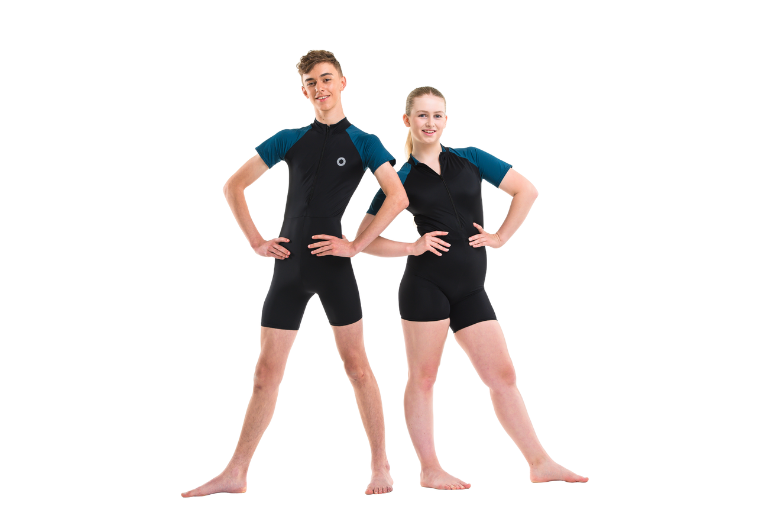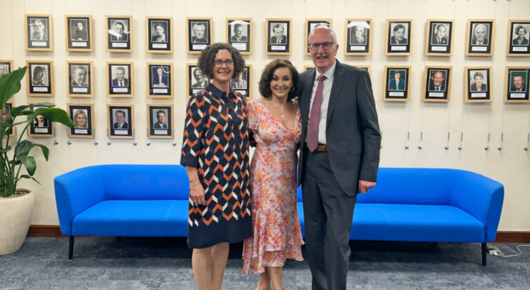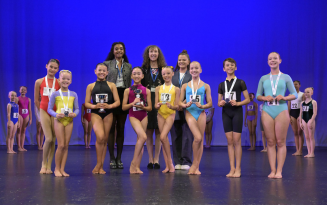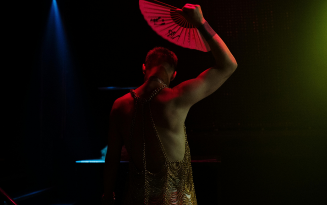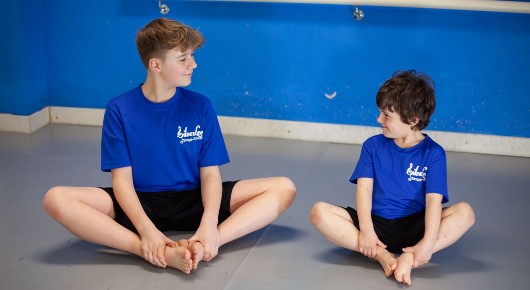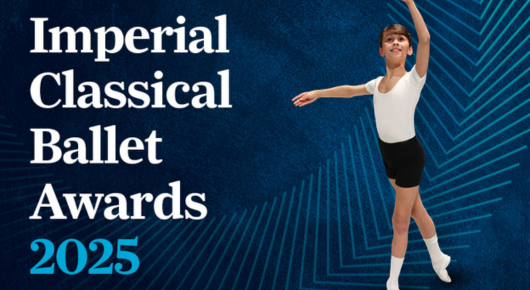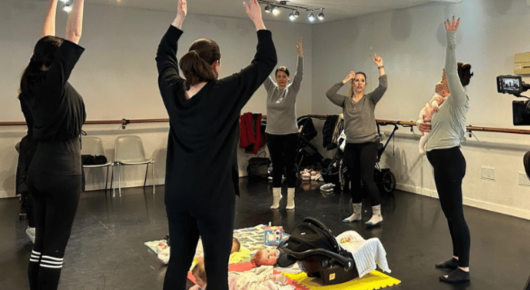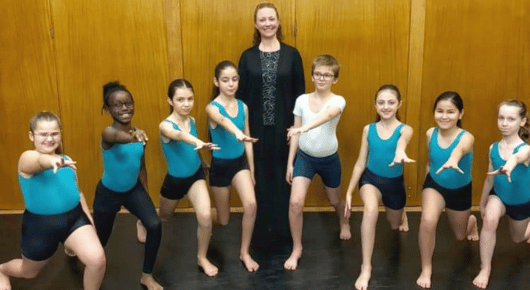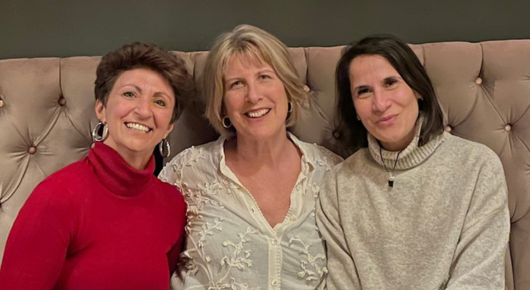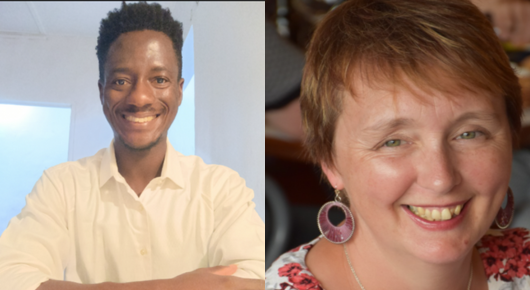20 March 2024
Starting dance at the tender age of two, Tia has grown up dancing, leading to the energetic life she lives today. To mark World Down Syndrome Day, we got in touch with Tia's mum and her teacher to ask a few questions about Tia, her experience at AK Academy of Dancing and how dance has helped her come out of her shell.

Tia's Mum
How did Tia first get into dance?
Tia got into dancing as I (her mum) danced at the same dance school since I was 4 years old. I kept dancing (to maintain fitness) whilst I was pregnant, and the moment I knew I was having a girl, dance was always going to be a part of her life.
How long has Tia been dancing?
Since she was two. She could only just walk with help, but starting in Baby Ballet at AK was greatly beneficial for her, to help her to walk.
How has dance helped your daughter?
Dance has helped with her development, improving her co-ordination, as well as teaching social skills and discipline. People always seem shocked on how well behaved Tia is, as many children with additional needs like Tia are always “hard work” (just another stereotype: I always get the comment "I bet she’s hard work").
How did you find a dance school that is inclusive of your child’s needs?
Tia was always going to go to AK Dance. I grew up myself at the academy and am now close friends with the teachers, as we all danced together as young children and adults. I trusted that they were always going to accept her and they never would segregate her or treat her different from any other child.
How do you find the ISTD syllabus?
The syllabus is good but I find that certain things she struggles with more. Tia is amazing with things that they recap over and over again, however, basic things like counting a rhythm she struggles with. Also, the exams - although she is 11, she doesn’t dance like most 11 years olds, so exams and competitions she doesn’t stand a chance at, as her mentality is of a younger child. She was fine when she was under 6 and under 8, but as the work becomes for technical, that is where she is now struggling.
Learn more about ISTD's Applications for Reasonable Adjustments (ARA)
How does dance impact Tia’s life, any benefits?
Dancing does amazing things for Tia. It gives her a variety of friends and learning new skills helps with her development. Also she likes daily routine and she knows on a Saturday it’s dancing day. She also loves the summer holidays when AK put on their annual holiday club.
"Dance has helped with her development, improving her co-ordination, as well as teaching social skills and discipline."
What do you think some of the many barriers in place for disabled people are in the dance world and how can we combat them?
Tia is now 11, so in Disco Freestyle she is in under 12’s, but the gap between her and her dance peers is just getting bigger and bigger. When she was in under 6’s, she could get away as little and cute. We love competitions, but she doesn’t stand a chance in her category as mentally Tia is of a younger age and the older she gets, unfortunately the bigger the gap.
What advice would you give to other parents of children with learning/physical disabilities looking to get into dance?
I find some parents that have a SEN child revolve their life around everything being SEN. If you find the right school with the right teachers you can have your child in a mainstream class. Tia is in a SEN school but she can still interact with “normal” kids - it’s also good for other kids. Don’t be afraid to put them in a dance class that’s mainstream - not everything needs to be SEN to be appropriate for our children. At the end of the day, they are kids, that just need a bit of extra help.
What’s been the highlight of your child taking dance classes so far for you?
I love how much she enjoys it. Watching her in shows and competitions, she absolutely loves it, she’s not bothered on being the best or winning - she just wants to dance. I grew up dancing and experienced the competitive side, but with Tia we don’t have that, she just loves it.
Any special dance moments from Tia’s journey so far, you wish to tell us about?
In AK’s biennial show last June, she had four dances to do and it was just amazing to watch! Singing her heart out as well, we had so many people comment on how she was loving it and also very comical with her booty shake!

Tia's teacher, Anna
Could you tell us a little about yourself and your dance school?
My name is Anna Knowles-Hibbert and I am one of the principal’s of our family run academy, the AK Academy of Dancing, based in Poole Dorset. I hold my L.I.S.T.D, ISTD DDE Diploma in Dance Education, Acrobatic Arts, 4D Pro Bungee and CPD in Chair Based Dance & Movement.
AK Dance has been established for over 30 years, first opening our doors in 1992, by my mother Andrea Knowles, and the school has grown from strength to strength over the years. Our standards are high, however our biggest passion is to ensure each and every student thrive in their own way throughout their journey with us. We offer examinations across the board in all genres, ISTD medallist competitions, Theatre Festivals, Medal Tests and more, but most importantly to our students, these events are always optional and never forced upon.
Our favourite quote in the school is ‘Hello Stranger, Goodbye Friend’ and over the past 30 years, AK has really gained a big community spirit and reputation for our inclusion within the school.
How have you adapted your classes to be more inclusive of a child’s individual needs?
We are very proud that at the heart of AK, all our staff have trained at the academy since they were babies and have gained all their teaching qualifications, then returned as a teacher for us. With this in mind, each staff member already knows and understands the importance of inclusion within our classes. If we have children with additional needs in any one class, we always ensure we have a teaching assistant within the class, as well as the teacher differentiating the lesson plan accordingly to involve all students and maintain progression. One thing we are particularly fussy about is to treat those with any kind of additional needs exactly the same as everyone else, so that they never feel ‘different’ or ‘out of place’.
"Each staff member already knows and understands the importance of inclusion within our classes."
Do you teach any other students with specialised needs?
Yes, we currently have another studen who, a couple of years ago, was refused from a number of local academies due to the fact that she had to use a walker, but just wanted some social interaction and to strengthen her muscles to try and help. We obviously took her in with open arms and she is now 6 years old, and after a lot of patience and hard work, she is now walking on her own and has recently taken her first ISTD Disco examination, which she thoroughly enjoyed being part of. This was an extremely proud moment for us to see.
What are some of the things in place in your school to help children with learning disabilities?
All staff are fully trained to help students with any kind of learning disabilities. All our classes/lesson plans are differentiated accordingly and as previously said, we always ensure we have a teaching assistant in any class that has a student with additional needs.
"Treat those with any kind of additional needs exactly the same as everyone else so that they never feel ‘different’ or ‘out of place’."
Can you share your experience of teaching Tia?
Tia is simply part of the furniture at AK. We have had the pleasure of teaching her within our classes since the moment she was walking. She started in our Baby Ballet and then added Tap, Modern, Disco and Rock’n’Roll to her list of classes over the years! Her mum Jessica trained with AK throughout her childhood, so it was an absolute pleasure to welcome Tia.
Tia has lots of friends in her classes and even though she is in the younger classes due to the fact that mentally she is a lot younger than her actual age, the students know how to deal with her when she gets over excited, but most importantly always include her. She works hard in all her classes and is the number one ‘class clown’ for making jokes and having everyone in stitches! She is a very popular student with all age groups at AK.
What do you think some of the many barriers in place for disabled people are in the dance world and how can we combat them?
I have thought and said for many years that sadly there just isn’t the ‘inclusivity’ in area / regional / national competitions, for children with additional needs.
I am proud to be on the ISTD Faculty Committee for DFR and am passionate to see change within the competitions and add an additional needs category, where these students such as Tia, with Down Syndrome, or other needs, have the chance to perform and compete within their own sections, where it is a fair competition and gives them reason to continue their passion throughout their childhood, work hard and aim to achieve big things, just like everyone else.
"Sometimes, a bit of perseverance, team work and social interaction within your classes, will go a long, long way for a student"
What aspects of teaching do you enjoy the most?
I absolutely love teaching in every way, but my biggest passion is to see the progression of my students thriving and achieving the best they can in every aspect of dance. As previously mentioned, we like to pride ourselves at a high standard at AK, however this doesn’t just mean ‘winning’ everything we do with every single student; sometimes just teaching someone to understand rhythm or understanding different lines throughout their body to enable them to accomplish greater technique, is enough. Dance isn’t just about learning to perform and being the best, it is also a huge proven factor that it helps with mental health, releases toxins in the body, stimulates the mind and much much more. Knowing and seeing this first hand is the best part of my job!
Do you have any advice for teachers on creating an inclusive environment within their dance class?
My advice would be to always be inclusive and never judge a book by its cover. Sometimes, a bit of perseverance, team work and social interaction within your classes will go a long, long way for a student with additional needs, and is extremely rewarding for you as a teacher. Buddy students up so they are regularly working with different people in class, try and avoid ‘clique-y group environments’ and treat everyone the same - because in the end, it will all work out for the best and you as a school will proudly have a strong reputation for your inclusiveness and care within your academy, which will always go far in the future.

